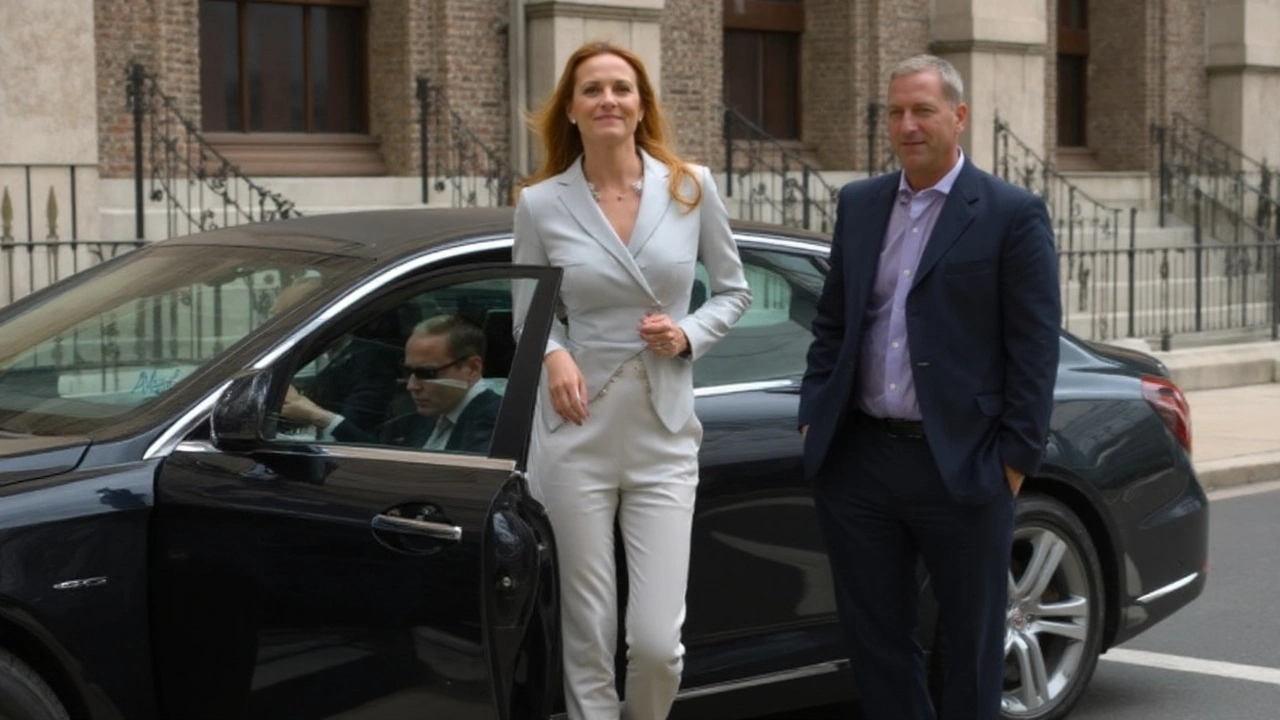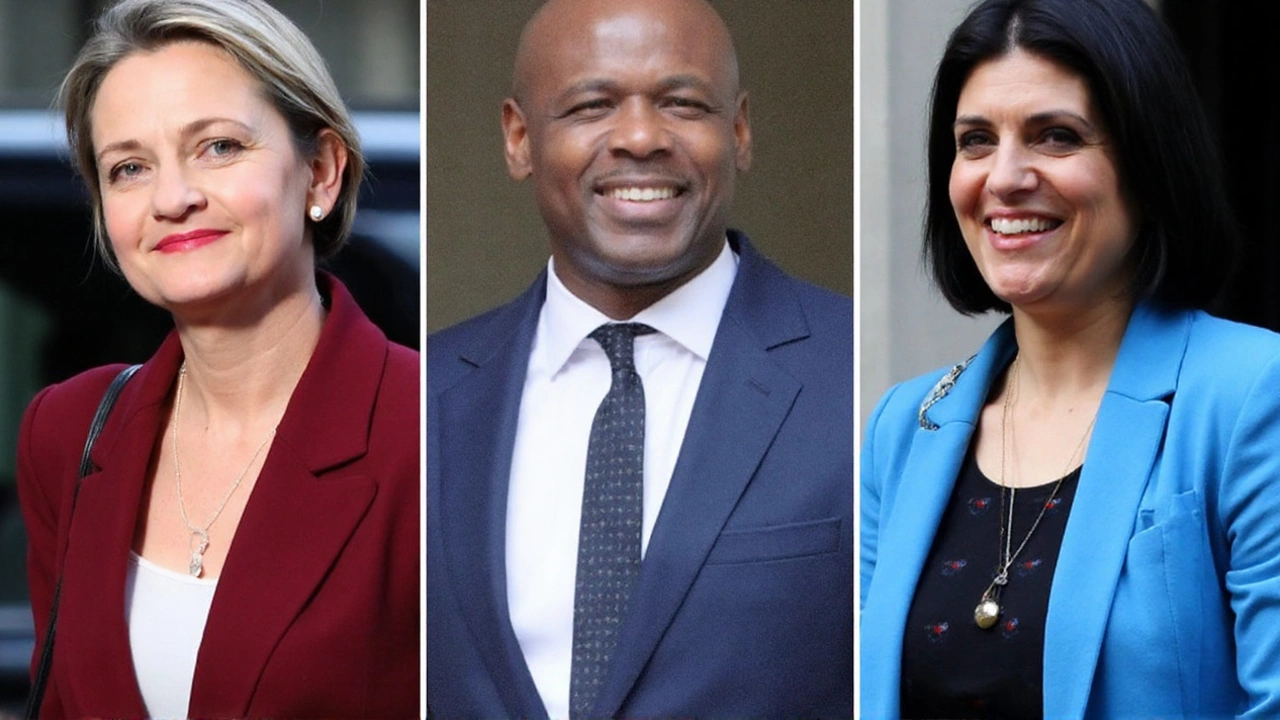Keir Starmer just moved his home secretary to the Foreign Office, shifted his foreign secretary to justice, and dismantled the party chairmanship held by the chancellor’s sister—all in one go. This wasn’t a routine tidy-up. It was a cabinet reshuffle designed to reset the government after Angela Rayner resigned over a tax breach and to tighten the grip on delivery for the rest of the parliament.
Markets were calmed early with word that Chancellor Rachel Reeves stays put. Everything else? In play. The result is an unusually sweeping rewire of Whitehall that touches almost every lever of domestic and foreign policy.
What triggered the shake-up
Angela Rayner resigned as deputy prime minister, housing secretary and deputy leader of the Labour Party after the independent standards adviser, Sir Laurie Magnus, ruled she breached the ministerial code. The case centered on stamp duty paid on a flat in Hove, bought in May. Rayner initially paid the standard rate after advice that it was her only home, since the family house in Ashton-under-Lyne was owned by a trust for her disabled son. Later checks showed she should have paid the higher rate applied to additional properties.
In British politics, tax compliance isn’t a paperwork footnote—it’s a test of integrity. The ministerial code is clear that ministers must meet their obligations in full. Even when intent isn’t in question, the perception of unfair advantage can be fatal. Rayner’s exit ripped open a political gap at the heart of Starmer’s project. The reshuffle aims to close it fast and refocus the government on delivery.
Behind the scenes, the shake-up had been brewing. Downing Street began smaller changes on September 1, 2025, but Rayner’s departure accelerated the timetable and raised the stakes. Starmer used the moment to redraw the map of responsibility across departments, especially on welfare, skills, and the Home Office.

Who moved where—and why it matters
Yvette Cooper leaves the Home Office to run the Foreign Office. That’s a rare move across two of the most demanding briefs in government. Cooper takes over foreign policy at a delicate moment: transatlantic ties are being redefined after months of outreach to Washington’s new leadership, and Europe relations still require careful handling on trade, security, and migration. Cooper is known for detail and grip. Expect a focus on practical security cooperation and steady, low-drama diplomacy.
David Lammy shifts from foreign secretary to justice secretary and becomes deputy prime minister. On paper, it looks like a demotion—especially after Starmer told him last November he would stay at the Foreign Office through the parliament. But justice is a political minefield that needs heavy hitters: prisons are at capacity, courts face backlogs, and sentencing reforms have been stuck. As deputy PM, Lammy also becomes Starmer’s stand-in and coordinator across departments. It’s a show of trust, even if it narrows his foreign policy lane after a year cultivating ties with Donald Trump and vice president JD Vance.
Pat McFadden, long seen as Starmer’s most effective operator, gets a brand-new super-ministry that merges the Department for Work and Pensions with the skills brief from the Department for Education. That’s a big bet on a single outcome: raising Britain’s productivity by moving people from welfare into work and equipping them with the skills employers need. McFadden takes over from Liz Kendall on welfare and slices off the skills remit from Education Secretary Bridget Phillipson. Success here means fewer vacancies, shorter NHS waiting lists from higher staffing, and a larger tax base. Failure means a bigger welfare bill and political pain in marginal seats.
At the Home Office, Cooper’s move set off a chain reaction. Senior posts have been reshuffled, with Alex Norris stepping in as a minister of state. The top job’s successor had not been confirmed at the time decisions filtered out, but the direction of travel is clear: the department is being reset after a year dominated by small boats, asylum backlogs, and police standards. The next home secretary will need fast wins—faster asylum decisions, a grip on returns, and a plan to reassure the public on crime without blowing the budget.
In a striking political call, Ian Murray was removed as Scotland secretary. That brief matters more now that Labour has rebuilt support north of the border. The next appointee will need to hold the union line, work with Holyrood even when relations are tense, and show progress on growth and public services. With a Scottish Parliament election due in 2026, the clock is already ticking.
Continuity at the Treasury was non-negotiable. By keeping Rachel Reeves as chancellor, No 10 avoided spooking gilt markets or sparking chatter about fiscal policy U-turns. Reeves has staked her reputation on stable budgets, supply-side reforms, and a rules-based fiscal framework. Her staying signals no sudden shifts on spending limits or tax policy while the rest of government moves around her.
Then there’s the party management piece. Ellie Reeves—Rachel Reeves’s sister—was moved out as Labour Party chair and made solicitor general. That’s a dramatic switch from political operations to a legal brief at the heart of government. It also removes the optics of a Reeves family double act in the party machine. Anna Turley, the Redcar MP and former whip, becomes minister of state in the Cabinet Office and will take the day-to-day party chair role. The message is tidy: tighten discipline, reduce distractions.
Other notable junior shifts round out the picture:
- Lucy Rigby moves to the Treasury as economic secretary, a key role on fiscal bills and financial services regulation.
- Sir Chris Bryant drops his split brief across culture and science and becomes minister of state at the Department for Business and Trade—expect a push on export support and investment zones.
- Luke Pollard heads to the Ministry of Defence as a minister of state, adding a security-minded voice with a record on veterans’ issues and shipbuilding.
- Georgia Gould leaves a junior Cabinet Office role for a minister of state posting in Education, likely focused on skills, apprenticeships, and college reform.
Put together, this is less a set of isolated moves and more a reordering around four priorities: economic stability, workforce skills, border control and policing, and a calmer, more pragmatic foreign policy.
What does it change tomorrow morning? On justice, expect Lammy to front a prisons plan that mixes emergency capacity with alternatives for low-level offenders and a push to speed up trials. On skills and welfare, McFadden will be judged by how quickly Jobcentres, colleges, and employers line up incentives—think local skills compacts, shorter bootcamps that lead to real jobs, and tighter rules for those repeatedly turning down offers. At the Home Office, whoever takes charge will push faster asylum decisions and firm returns agreements, alongside a renewed focus on serious crime and violence against women and girls.
The foreign policy turn is subtler but important. Cooper arrives as Europe reopens debates on defense spending and industrial strategy, and as London navigates a more hard-nosed White House. Lammy’s year building channels to Trump and Vance won’t be wasted, but Cooper’s style—more Whitehall, less broadcast—could shift the tone. Expect fewer splashy set pieces and more behind-the-scenes stitching on Ukraine support, border cooperation, and trade facilitation.
There’s also the political calendar to watch. A deputy leadership contest inside Labour is now on the cards after Rayner’s resignation from the party role. The process will run alongside parliamentary business and could tug media oxygen just as No 10 wants to talk delivery. Picking a steady interim for the housing brief will also matter; the government’s 1.5 million homes target can’t afford drift while a new deputy leader is chosen.
If you’re looking for the risks: super-ministries can stall. Combining welfare and skills promises coherence but invites turf wars over budgets, data-sharing, and targets. The justice brief can consume a deputy PM fast—one bad week of prison overcrowding or a high-profile case and the headlines write themselves. And whenever the Home Office resets, culture fights over migration flare. Starmer’s calculation is that stronger operators in the right jobs beat those risks.
If you’re looking for the rewards: a clean line from Jobcentre to classroom to employer could lift participation and wages in places that flipped to Labour last year. A steadier Foreign Office might dial down diplomatic noise and dial up results. And locking the Treasury in place tells investors the macro framework stands, even as the political cast changes.
Personnel notes aside, the policy test starts now. Budgets in the autumn will need to show how McFadden funds training places without raiding frontline services, how Lammy eases prison pressure without blunt early releases, and how the new Home Office leadership cuts backlogs without sacrificing due process. Those are measurable outcomes, not slogans.
The reshuffle began as damage control after a tax breach. It ended as a full rewire of how this government wants to work. The next six months will show whether the wiring holds when the lights are on.
